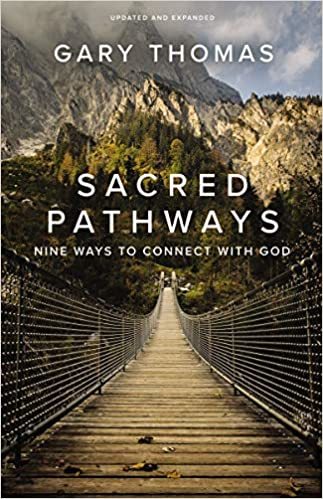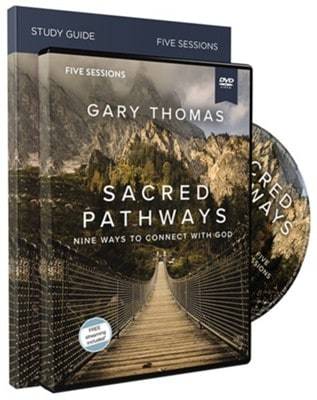When Marital Devotional Styles Collide
Through 36 years of marriage, my wife and I have been members at more than our share of churches. Among my wife’s favorites was an unusual gathering: a conservative, charismatic Episcopalian congregation in Northern Virginia. Because it was a smaller church, with just one service, they had the luxury of offering services that lasted one hour and forty-five minutes. The service had a full Episcopalian liturgy, complete with communion (every Sunday), the normal 25 to 30 minutes of charismatic chorus-type singing, and a 15-to-20-minute sermon.
I sometimes felt short-changed by the sermon, which often felt more like a “thought for the day” exercise than a real, get-into-the-guts-of-the-passage type of teaching I’m most fond of. But we loved the other members, and during the week I’d listen to a couple sermon tapes (this was back in the days when “downloading” sermons was the stuff of science fiction) to get my “fix.”
Married couples often haveto make certain compromises when it comes to choosing a church, but in the area of personal devotion, compromise not only isn’t necessary, it can be unhelpful. By pursuing my own study and listening to sermons during the week, I was able to fully participate in and enjoy a church that might not have been my first choice, but that served my wife well. In this case, my Monday through Saturday personal worship made the Sunday public worship palatable.
While there is much talk about finding a church both husband and wife can agree on, there is too little talk about individual devotional practices. If you’ve read any of my marriage books you know how strongly I believe that our devotional life is an essential element of empowering our relational life: closer to Christ (first), then closer to others.
It’s to be expected that spouses will have even more widely divergent styles of personal worship than they do public worship. In fact, it’s rather unusual for spouses to prefer a similar devotional time. This can actually be a bonus for the kids, as they get to see two different yet genuine expressions of personal worship, but it can cause problems when one spouse thinks there’s a “right” and a “wrong” way, or worse, an “only” way.
It’s tempting to conclude that since Jesus is the only way to God and heaven, there must be only one way to worship Him. Yet both Scripture and Christian tradition present a wide variety of devotional approaches to God, all equally acceptable, and all open to the fact that God makes us with different dispositions and personal preferences. Some forms of personal devotion that seem to fit us just right might be too noisy, too quiet, too liturgical, or too strange for our spouse or someone else. Just as I’ll never fit into my wife’s clothes, I’ll also never have a quiet time quite like hers. And that’s by God’s design.

9 Windows to Worship
Read through the Bible and you’ll see Abraham building altars, David dancing or writing a psalm, Mary sitting adoringly at Jesus’ feet, John the Baptist fasting, and Peter’s mother-in-law serving. All of these spiritual heroes worshipped God while doing different things. In my book Sacred Pathways, I’ve identified 9 different spiritual temperaments (or pathways) to describe personal worship. See if you can recognize yourself (and your spouse or children) in one of the following:
Naturalists These believers’ hearts open up to God when they get out of doors. Staying in a room is one of the worst ways for them to meet with God, because God seems more real to them when there’s a mountain in the background, or they’re hiking under a big expanse of sky or at least sitting under a tree.
Intellectuals These Christians really like books—even the reference kind—and live in the world of “concepts.” They want to come out of their devotional time with new understanding. If their minds aren’t engaged or they aren’t learning something new, their heart may feel cold.
Sensates are more aesthetically inclined; these are the artistic types, and they prefer creative and original music or even good architecture to open their hearts to God’s presence. Their worship is about seeing, hearing, feeling, touching, and even tasting God’s presence.
Traditionalists find great meaning by worshipping God according to set patterns—their own, or history’s. They may organize their life around scheduled times of prayer, and may even choose to carefully observe the Christian calendar, aligning themselves with centuries of faith. In addition to establishing rituals, traditionalists often make good use of Christian symbols.
And then there are the ascetics. When you think of the “ascetic” pathway, think of a monk or a nun. Ascetics meet God internally—they don’t want the distractions of a museum or a group meeting, as they prefer to shut out the world and meet God in solitude and austerity. For them, the best environment for personal worship is silence, without any noisy or colorful stimulants. They may prefer solitary retreats, or at least a quiet place with a rather orderly environment. They are often advocates of all night prayer vigils and many of the classical disciplines, such as fasting and meditation.
Activists love to meet God in the vortex of confrontation. They want to fight God’s battles. For them, church is primarily a place to collect signatures and sign up volunteers for the “real work” of the Gospel that takes place outside the church building. God becomes most real to them when they are standing up for justice, reaching out for converts, or working on the front lines to build God’s Kingdom.
Caregivers love God by loving others. Providing care and meeting needs in Jesus’ name spiritually energizes them and draws them ever closer to the Lord.
An enthusiast loves the excitement and celebration of their faith, and probably spends more money on music than books. Enthusiasts tend to be more relational, and therefore may favor group worship. They feed off the excitement of other believers praising God, and also typically revel in God’s mystery and supernatural power. They like to take spiritual risks, and wake up hoping God will do something new and fresh. Their exuberance tends to lead them to embrace creative forms of worship.
Contemplatives are marked by an emotional attachment and even abandonment to God. They are God’s lovers, and they want to spend their time in God’s presence, adoring him, listening to him, and enjoying him. They often favor the discipline of journal writing, where they can explore their heart’s devotion.
When an Enthusiast Marries a Caregiver
Ellen has been married to Bob for 15 years. She has her suspicions about Bob’s love for God, however, because she notices he never really seems to be fully engaged in the worship time at their church. Yet Bob is the first to sign up for any opportunity to paint a widow’s house or work on the church landscaping.
Ellen makes the mistake of assuming that because Bob isn’t musically inclined, he’s not worshipful, but some people just don’t engage as well with God by singing worship choruses. That may be a statement about their temperament more than it’s a statement about their love for God. When Ellen the enthusiast understands that Bob is a caregiver, she can begin to appreciate her husband rather than judge him.
Jim’s a classic intellectual. He has an impressive library of Christian reference books, most of them underlined, and enjoys studying Scripture. His wife Anne is a typical contemplative. She loves to journal, she writes poetry to God, and though she’s in a weekly Bible study (and faithfully does her homework), she places more emphasis on “connecting” with God than on learning new things about Him.
Jim believes that a “true” quiet time leaves you with something to apply. If you haven’t learned a new lesson, he thinks you haven’t really met with God. Anne enjoys just spending time with God. Sometimes she comes away with a new thought or perspective, but for her, worship is about adoring God and reconnecting with Him. When Jim asks her how she will apply what she learned that day, Anne wants to reply, “What good is all that head knowledge if it never changes your heart?”
In reality, all head knowledge is a danger, just as is focusing only on “heart” worship and never studying to open up your mind to God’s truth. Instead of chastising each other, however (or worse, competing with each other), Jim and Anne need to recognize that, together, they model a fuller response to God than either one would alone, and their kids can benefit accordingly.
Learn, Don’t Judge
Two key attitudes will help couples get the fullest benefit from different marital styles of worship.
First, instead of judging your spouse’s devotional style, seek to understand and learn from them. May none of us ever dare to think that we’ve cornered the market on understanding, knowing, and loving God. We worship such an immense God, with a breathtaking creativity, that we can expect one of the reasons He calls us to become a church is because no one individual can adequately represent what it means to relate to Him. Contemplatives need intellectuals; caregivers should work with activists, rather than fight over which one is being more faithful. God has given you your spouse to increase your own understanding of worship; don’t try to limit your spouse’s understanding by making him or her fit into your own box.
Second, make an effort to encourage your spouse to pursue God according to their personal bent. If you’re married to a naturalist, you’ve got to give them freedom to get outdoors. They may want to spend lunchtime walking through a park or take a detour home from work to reconnect with God before coming home. If you’re married to an ascetic, he or she is going to need some time alone. Don’t take it personally. Ascetics need their space, and quiet, to connect with God. They’re not rejecting you—they’re pursuing Jesus.
Every pathway needs to remember, however, that there are four elements essential to personal devotion: adoration, communication with God, building the mind with God’s Word, and service. Just because the intellectual enjoys study, and the activist enjoys confrontational ministry, doesn’t mean they don’t need to spend time adoring God and praying. And just because the enthusiast can sing for hours doesn’t mean she can mature without spending time in God’s word.

But here’s the key: how we pray, how we worship, how we study God’s word will differ. As long as we are praying, getting into Scripture, spending time adoring God, and serving Him with all our might, our differences are something to be celebrated and embraced. Thank God that your marriage offers you the opportunity to give a fuller response to God as a couple than you ever could as an individual.
The post When Marital Devotional Styles Collide appeared first on Gary Thomas.



